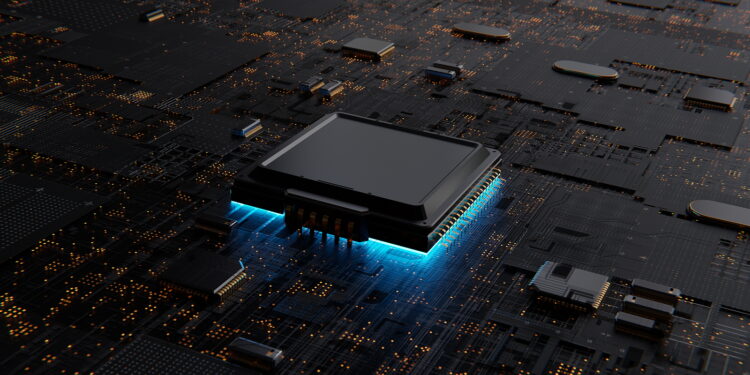The demand for specialized chips for artificial intelligence is growing rapidly. Companies around the world are investing in powerful hardware to meet the increasing demands of training and executing AI models. While Nvidia is currently considered the leading provider of AI chips, OpenAI is working on its own solution. The company's first own chip is expected to be completed by the end of the year. This could make OpenAI more independent of third-party providers and make its infrastructure more efficient.
Artificial intelligence is no longer just a vision of the future, but has become established in many areas of industry. From training neural networks to real-time data processing - powerful chips are essential for the operation of modern AI models. Nvidia graphics cards currently dominate the market for AI applications. But since the demand for these chips has increased enormously, they are often difficult to obtain and expensive. OpenAI, the company behind ChatGPT, is therefore working on its own hardware solution. This would not only enable OpenAI to save costs but also better meet the specific requirements of its AI models.
OpenAI is driving forward the development of its own AI chip
According to a report According to the Reuters news agency, OpenAI is pushing ahead with its plans for its own AI chip. The company is currently in the final design phase and wants to have the first chips produced this year. Production will reportedly be handled by TSMC, one of the leading semiconductor manufacturers that also supplies Apple with processors. A crucial milestone in this process is the so-called "tape-out". This is the last phase of chip design before mass production can begin. This step is very expensive and requires investments of several tens of millions of dollars. In addition, it takes up to six months before a chip can actually be produced. If errors occur, the entire process could be delayed because development would have to start from the beginning.
Aim of the project: More control and less dependence
OpenAI's new chip will initially play a limited role but will already be able to run AI models. In the long term, it could also be used to train neural networks. If the project is successful, OpenAI is already planning to develop even more powerful chips. The most important reason for developing its own chips is independence from Nvidia. The company dominates the market for AI graphics processors, which makes OpenAI heavily dependent on its hardware. Having its own chip could bring several advantages:
- Reducing the cost of AI training and applications
- Better optimization of hardware for OpenAI's specific needs
- Less dependence on third-party providers and therefore more flexibility
Competition never sleeps: Other companies are also investing in AI hardware
OpenAI is not the only company investing in its own AI chips. Other tech giants are also increasingly relying on customized hardware. Apple currently uses Amazon chips to train its AI models, but is reportedly working with Broadcom on its own server chip for artificial intelligence. Meta and Microsoft are also investing billions in expanding their AI infrastructure to become more independent of external hardware suppliers. At the same time, new developments show that powerful AI models do not necessarily depend on high-end hardware. The Chinese start-up DeepSeek has proven with its latest AI model that efficient algorithms play a key role. This could also influence OpenAI's strategy.
Own chips as a competitive advantage: OpenAI's strategy for more independence
The development of its own AI chip is an important step for OpenAI towards more control over its own infrastructure. If the chip is produced as planned and used successfully, this could change the market for AI hardware for the long term. It remains to be seen whether OpenAI will manage to break away from Nvidia. What is certain, however, is that the competition for specialized AI chips is becoming increasingly fierce. Companies that secure their own hardware solutions early on could have a decisive advantage in the long term. (Photo by angel_nt / Bigstockphoto)
- DeepSeek on the road to success – but OpenAI raises allegations
- Apple under pressure: British government demands iCloud backdoor





